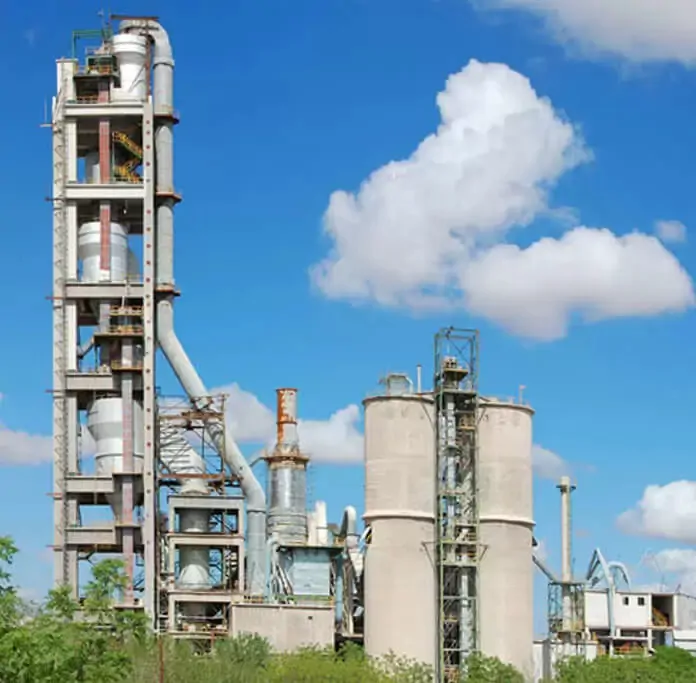Different Types of Cement Used in Construction Projects
Discover the various types of cement used in construction projects, including OPC, PPC, SRC, and more. Learn how NNT Cement offers specialized cement for all construction needs.

Different Types of Cement Used in Construction Projects
Cement is one of the most critical materials used in the construction industry. It is the binding element that holds structures together, making it an essential component in the creation of buildings, bridges, roads, and other infrastructure. NNT Cement, a trusted name in the construction world, offers a wide range of cement types tailored to meet different construction needs. Understanding the different types of cement and their applications can help in choosing the right product for specific projects, ensuring durability and efficiency.
What is Cement?
Cement is a fine powder made primarily from limestone, clay, and other materials. When mixed with water, it forms a paste that hardens over time. This chemical process, known as hydration, allows cement to bind materials like sand, gravel, and bricks, forming concrete and mortar. Cement is used in various applications, including buildings, bridges, pavements, and dams, making it a fundamental component in construction.
NNT Cement specializes in the production of various cement types, each designed for specific uses. Below are the most commonly used types of cement in the construction industry.
1. Ordinary Portland Cement (OPC)
Ordinary Portland Cement (OPC) is the most widely used type of cement. It is a versatile product that sets and hardens quickly, providing high strength and durability. OPC is used in general construction projects such as residential buildings, roads, and bridges.
Applications:
- Residential and commercial buildings
- Bridges and pavements
- Water retention structures
- Precast concrete products
Benefits:
- Fast setting time
- High compressive strength
- Widely available
2. Portland Pozzolana Cement (PPC)
Portland Pozzolana Cement (PPC) is a blended cement that contains a mixture of pozzolanic materials such as fly ash, volcanic ash, or silica fumes. PPC has excellent resistance to chemicals and is more durable in harsh environmental conditions.
Applications:
- Marine structures
- Hydraulic structures
- Sewage treatment plants
- Dams and reservoirs
Benefits:
- Improved workability
- Higher resistance to chemical attacks
- Enhanced durability in aggressive environments
- Reduced heat of hydration, making it suitable for mass concreting
3. Rapid Hardening Cement
Rapid Hardening Cement (RHC) is known for its ability to achieve high strength in a short amount of time. This type of cement is used when quick construction is required, such as in repair works or precast concrete.
Applications:
- Road repairs
- Precast concrete products
- Rapid construction projects
- High-traffic areas
Benefits:
- Gains strength quickly, reducing construction time
- Suitable for emergency repairs
- Ideal for projects with tight deadlines
4. Sulphate Resisting Cement (SRC)
Sulphate Resisting Cement (SRC) is specifically designed to resist sulfate attacks, making it ideal for use in areas where soil or groundwater has a high sulfate content. This type of cement protects structures from chemical deterioration.
Applications:
- Foundations in sulfate-rich soil
- Coastal structures
- Sewage treatment plants
- Industrial wastewater projects
Benefits:
- High resistance to sulfates
- Increases the longevity of structures in aggressive environments
- Reduces the risk of chemical damage to concrete
5. White Cement
White Cement is similar to Ordinary Portland Cement, but it is manufactured with a lower iron content, giving it a white color. It is often used for aesthetic purposes in construction, where the appearance of the concrete is a priority.
Applications:
- Decorative works
- Architectural finishes
- Tile grouting
- Terrazzo flooring
Benefits:
- Bright, white color for aesthetic appeal
- Smooth finish
- Used in artistic and decorative applications
6. Low Heat Cement
Low Heat Cement is designed to release less heat during the hydration process. This property makes it ideal for large concrete pours, where excessive heat could lead to cracking and structural issues.
Applications:
- Dams and massive structures
- Large foundations
- Retaining walls
Benefits:
- Minimizes thermal cracking in large structures
- Reduces the risk of temperature-related damage
- Ideal for use in mass concrete projects
7. Hydraulic Cement
Hydraulic Cement is a type of cement that sets and hardens when exposed to water. It is commonly used in underwater construction or structures that are constantly exposed to moisture.
Applications:
- Underwater structures
- Tunnels and bridges
- Dams and reservoirs
Benefits:
- Sets quickly under water
- Provides excellent durability in moist environments
- Ideal for use in marine and water-retention structures
8. High Alumina Cement
High Alumina Cement is known for its rapid hardening and high heat resistance. It is used in specialized construction projects where high temperatures are expected, such as in furnace linings and chimneys.
Applications:
- High-temperature environments
- Chimneys and furnace linings
- Industrial plants
Benefits:
- High resistance to heat
- Rapid setting time
- Suitable for projects exposed to extreme temperatures
Read more: Types of Cement Used in the Construction Industry
Conclusion
Choosing the right type of cement is crucial for the success and longevity of any construction project. NNT Cement provides a wide range of cement types designed for various construction needs, ensuring that your projects are durable, efficient, and long-lasting. Whether you're constructing a residential building, a dam, or a decorative structure, understanding the different types of cement and their specific applications will help you make an informed decision.
With NNT Cement's reliable products, you can be confident in the quality and performance of your construction materials. Each type of cement offers unique benefits, making it easier to choose the right one for your project’s requirements.
What's Your Reaction?















